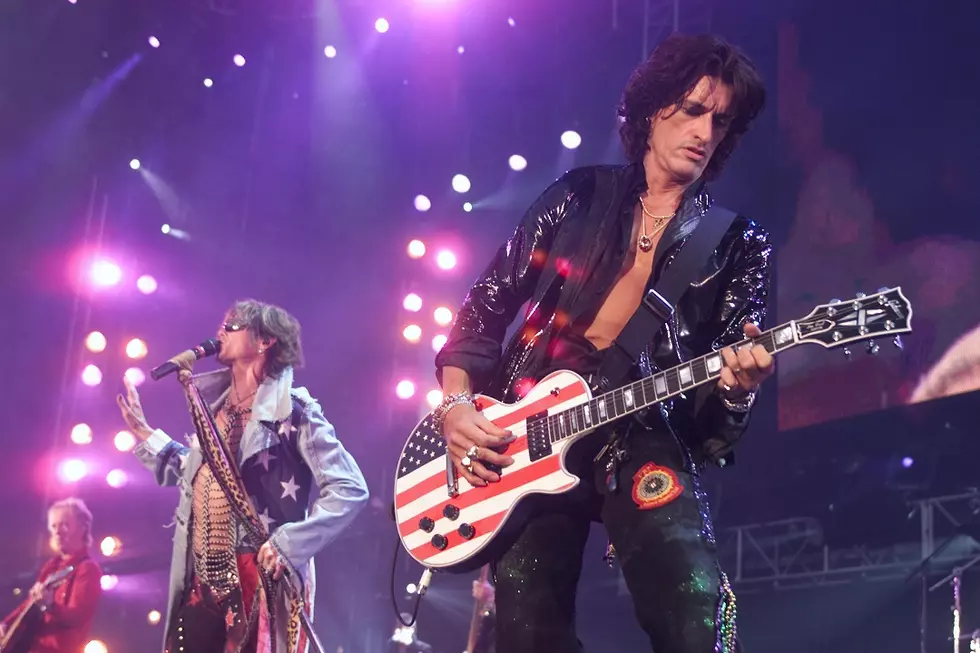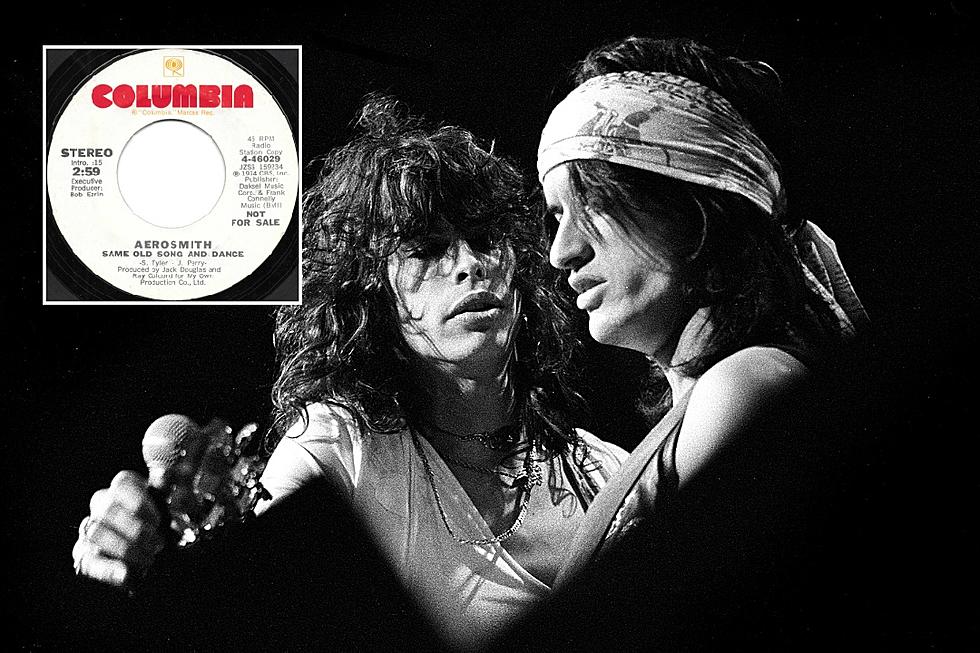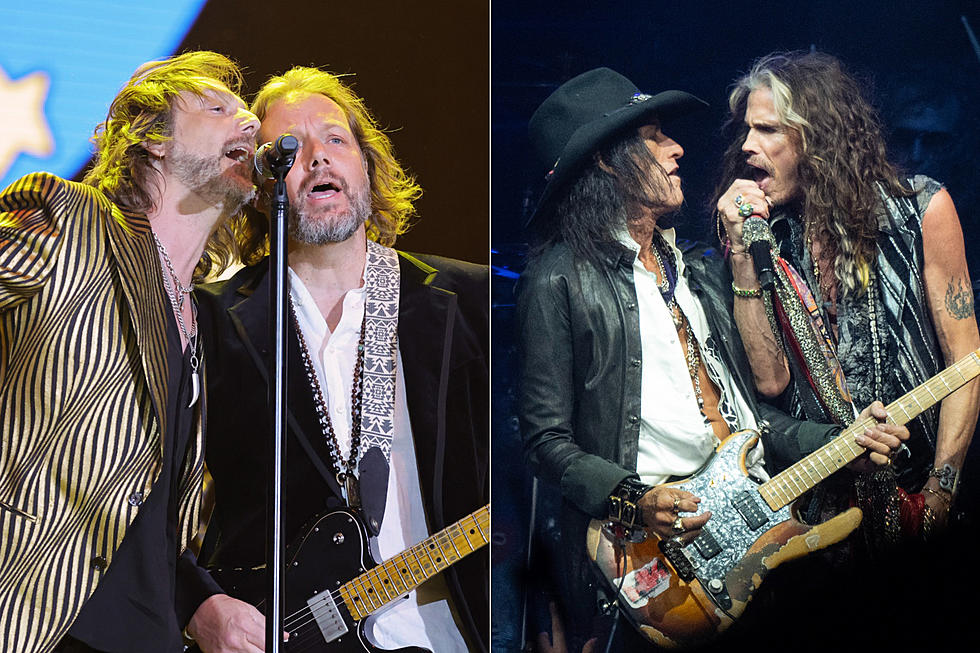
When Aerosmith Rocked the Delay-Plagued United We Stand Benefit
A slew of charity concerts were organized following the events of Sept. 11, 2001, each of them with their own identity. America: A Tribute to Heroes was a somber telethon that featured a wide variety of artists. The Concert for New York City was a cathartic celebration featuring a bevy of British rockers. The two lesser-known Volunteers for America concerts focused on American classic rock bands.
United We Stand: What More Can I Give was the pop-oriented benefit show, which makes sense since it was organized by the King of Pop, Michael Jackson. It also was the only major charity concert to take place in Washington, D.C., which had seen the Pentagon attacked by terrorists on 9/11.
The event – which happened on Oct. 21, 2001 – was planned to feature a half day of performances at D.C.’s Robert F. Kennedy Memorial Stadium. Although United We Stand favored current pop stars (with key spots given to Mariah Carey, ’NYSNC, Janet Jackson and Destiny’s Child), the schedule also featured musicians from other genres. Classic R&B was represented by legends Al Green and James Brown. Pop-rock bands of yesterday (Huey Lewis and the News) and the moment (Train, Goo Goo Dolls) performed. Plus, there was a little room for classic rockers.
When tickets for the show went on sale, scheduled acts had included Kiss and Mick Jagger (each decided to “give” elsewhere, with Jagger playing the Paul McCartney-led Concert for New York City the previous night). But attendees still got to see some long-running rockers at the concert, which featured America, Rod Stewart, Carole King and Aerosmith, who each delivered short sets, many with songs that tied into the heavy feelings so many Americans were feeling. King opened with “So Far Away,” Aerosmith played “Livin’ on the Edge” and Stewart sang “Rhythm of My Heart” in front of a video of a soldier coming home.
As at other benefits, the mood was often resolute. Aerosmith singer Steven Tyler began his band’s set by declaring, “This is America, and we got something you can’t kill: that’s the spirit of freedom, love, God, liberty and the pursuit of rock 'n' roll!”
Aerosmith pursued rock 'n' roll at two different performances that day. The band already had a tour stop schedule in Indianapolis, but played an afternoon slot at United We Stand with enough time to fly to Indiana for the evening gig.
In contrast to some of the other benefit concerts, the D.C. show was not televised live, which might have been for the best. The event was structured to last eight hours, but things ran behind schedule and it ended up continuing for nearly 12. According to reports from attendees, much of the extra time wasn’t due to performances, but set-up between acts, which could last from 30-45 minutes. The crowd got antsy and many became upset at the extended delays. Plus, the stadium vendors ran out of food.
So, by the time Jackson showed up for his headlining performance (after no less than three introductions by Chris Tucker and event MC John Stamos), he was singing to a partially empty stadium. Well, except that he wasn’t singing at all; MTV reported that he lip-synched “Man in the Mirror.” The show ended with the debut of Jackson’s charity single, “What More Can I Give,” which was hampered by audio issues and singers missing their cues.
ABC condensed footage from the day into a Nov. 1 TV special, which had its own controversies. Apparently Stamos had hosted the event in order to promote his new ABC series, producers added crowd noise at later portions of the show to make the stadium sound more full and the network had to mostly cut around Jackson’s participation. That’s because the King of Pop had already signed a contract with CBS for another (non-charity) special that barred his appearance on other programs. In addition, the show’s namesake single wouldn’t see release for two more years because of industry shenanigans.
With 54,000 tickets sold, United We Stand raised money for the American Red Cross Liberty Relief Fund, the Salvation Army Relief Fund, the Pentagon Relief Fund and the Rewards for Justice Fund. But the incident-plagued concert also left many attendees feeling – to quote a 2001 Aerosmith hit – jaded.
Ranking Every Aerosmith Album
See Aerosmith Among Rock's Most Criminally Underrated Albums
More From Ultimate Classic Rock









